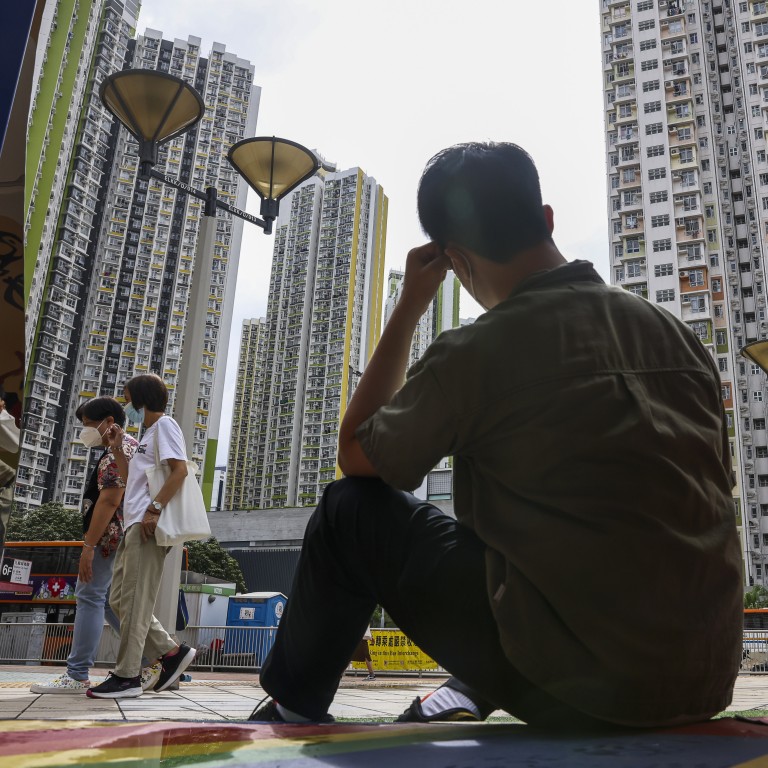
Why helping Hong Kong’s low-income youth makes good business sense
- Targeted vocational training and education would give low-income youth more options, while helping the city’s re-industrialisation policy
- For far too long, the economy has depended on a rather narrow range of sectors and it has led to a frustrating lack of social mobility
Yet, I want to take a slightly different path here. Independent of what the new administration does, there are many concrete ways in which our private sector – businesses and investors alike – can help ameliorate the strains that afflict our youth.
But what’s in it for the business conglomerates, you may ask? Beyond obvious humanitarian reasons, there may also be pragmatic motivations at play.
A cohort of empowered youth, lifted from poverty, is likely to emerge as productive members of society – who can contribute to Hong Kong’s re-industrialisation policy and drive for greater productivity through innovation. Specifically, they could do high-end manufacturing jobs that have, for decades, been outsourced.
Besides, a more equal society, with fewer conspicuous barriers crushing the dreams of young people, is less likely to be beset with the doom and gloom that has shrouded our city in recent years.
One of the underlying causes of the civil and political unrest is the widely shared sentiment that Hong Kong’s economy is unwelcoming to newcomers and to those seeking to climb up the social ladder without inherited wealth to fall back on. Reducing youth poverty is necessary for genuine social stability. Here are three specific prescriptions.
First, education. While there has long been talk of an overhaul of school curriculums and the exam system to bring them more up to date, what has been neglected in the discussion is the limited options higher education graduates have in a hugely competitive market.
Private firms, philanthropists and trusts should look into setting up targeted vocational training and education programmes for students from underprivileged families, with a mentoring and partnership system that matches these young people to role models.
These scholarships should not be entirely tied to academic performance. Indeed, I would recommend an element of holistic assessment, designed to identify individuals with potential, creativity and independent thinking.
‘Like caged animals’: Hongkongers in subdivided flats say they have no choice
Private actors could make future bonded employment a condition of these scholarships, which would be helpful in deepening the capital pool and justifying the investment. But they could also keep the scholarships open-ended and values-driven, as do charities such as the Kwok Scholars Association, which made possible my Oxford education.
Second, it is high time that property developers and business magnates established workers hostels for youth who work in the city centre and those for whom commuting poses a serious challenge.
Providing families with young children with dignified housing and money to spend at their own discretion is a significant step. It goes without saying, too, that these young parents and couples require financial literacy training and related advisory services. Such knowledge or capacity building is surely essential if the families who receive funds are to use them prudently.
Above all, it’s time that we rethought our industrial policies. For far too long, Hong Kong has depended on a rather narrow range of sectors in which the city’s affluent have built their wealth.
Yet financial, legal and real estate sectors, to name a few, do not open themselves up easily to new entrants or individuals who lack the means in the first place. Our youth’s competitiveness in the job market has stagnated, even regressed, as competition with non-locals intensifies through heightened migration from the mainland and abroad.
Our youth deserve better. More importantly, our private sector can do better. It is high time for public-private partnerships to steer Hong Kong once again, as our city starts a new chapter.
Brian Wong is a DPhil in Politics candidate at Balliol College, Oxford, a Rhodes Scholar (Hong Kong 2020), and the founding editor-in-chief of the Oxford Political Review

.png?itok=bcjjKRme&v=1692256346)
